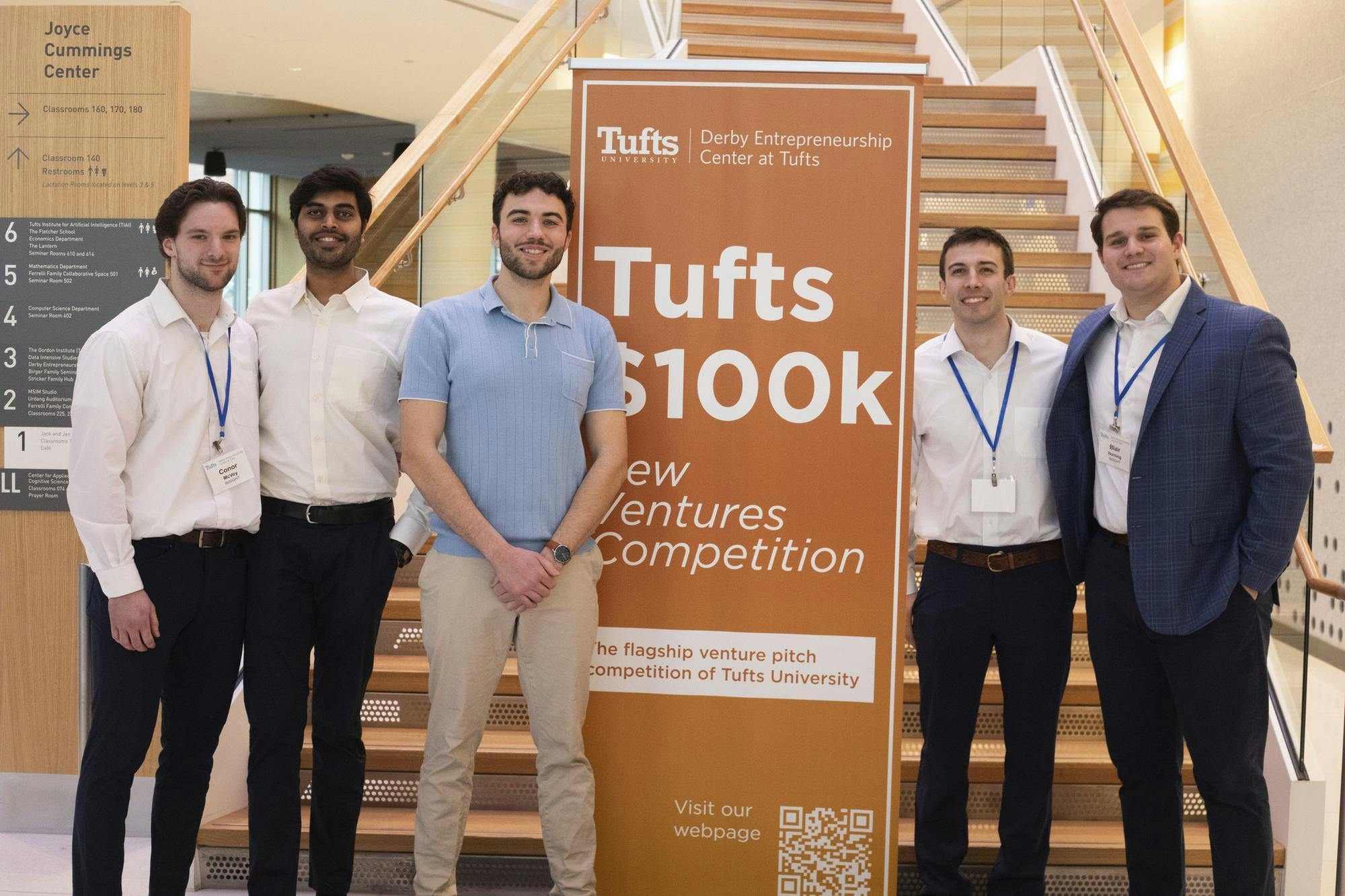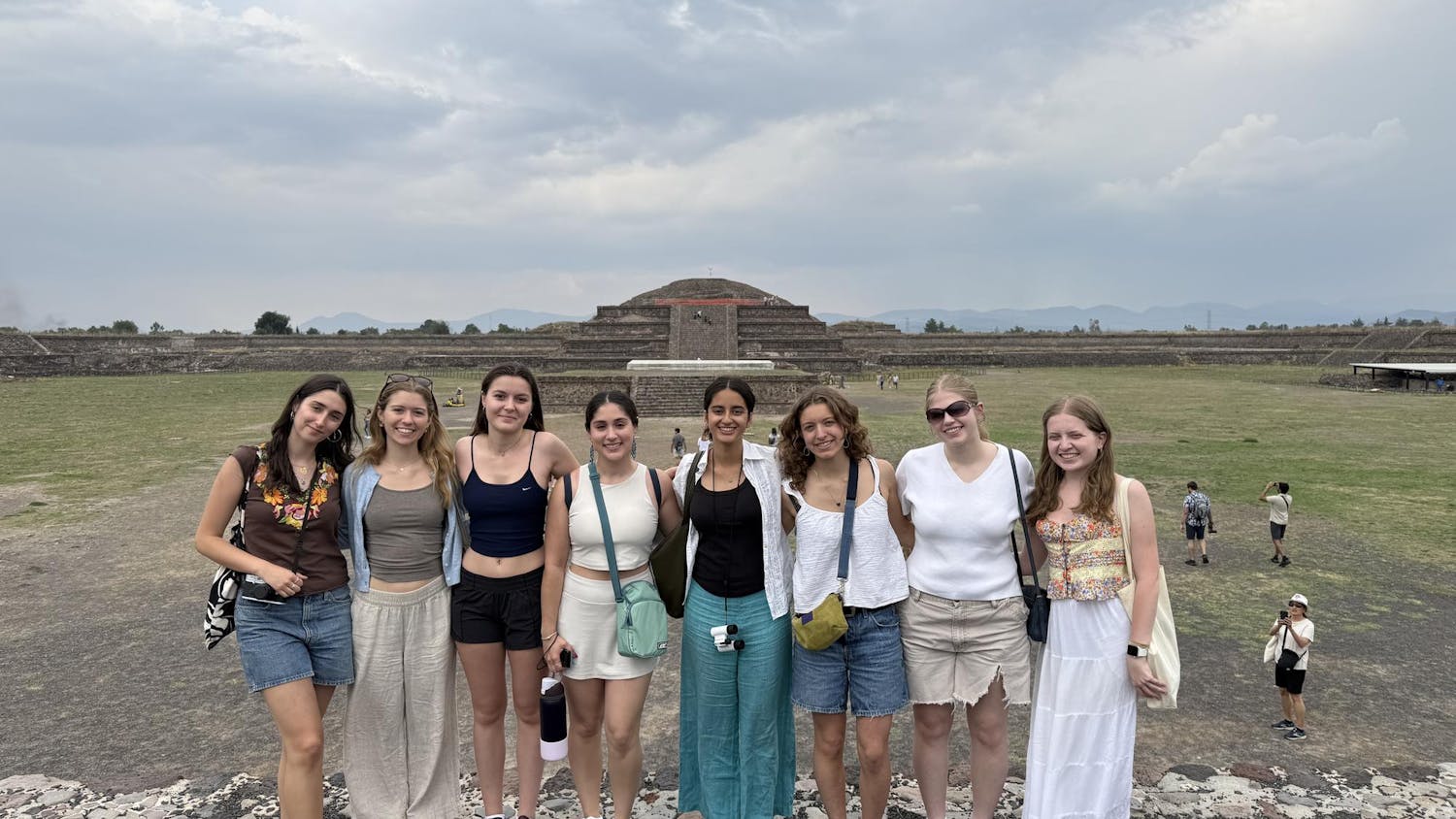In the fourth and final installment of the Tufts 4+1 degree program series, the Gordon Institute Fifth-Year Masters of Science in Innovation & Management program prepares students for the role of product manager or project manager.
Kevin Oye (E’79) is the executive director of the Gordon Institute, the director of the MSIM program and a professor of the practice. After 35 years of working with tech companies, Oye returned to Tufts where he was eventually appointed to launch the MSIM program.
The Gordon Institute holds three different master’s programs: M.S. in Technology Management & Leadership, M.S. in Engineering Management and the M.S. in Innovation & Management. In the last eight years, there have been over 160 graduates from the Gordon Institute, Oye said.
“They've gone on to do wonderful things. … They work in big companies … but they’ve also done startups, leveraging Tufts technology,” Oye said. “We as an organization are reaching out to the faculty across the university to bring their research into not only our classroom but as potential ventures.”
About 85% of students in the MSIM program have a STEM background, while the other 15% range from economics to fine arts majors, Oye said. Tufts undergraduates can enter the program with four elective course credits, meaning they only need to take an additional six courses. This equates to about a 40% reduction in costs for the MSIM fifth-year program.
The students of the MSIM program are both recent graduates and working professionals. The mixed classroom provides a great opportunity for networking and, in some cases, helps fifth-year students find internships and job postings.
The first semester consists of classes that provide the foundational knowledge on how to build a startup, including marketing and finance. In the second semester, students have more flexibility in choosing their courses within the Gordon Institute. In addition to applicable coursework, students are paired up with mentors who are graduates and alumni of the MSIM program.
Throughout the year, students form small teams and build a startup around a product. They conduct thorough research, look at the financials and work on marketing their product.
The Gordon Institute prides itself on the fact that all the faculty are industry practitioners. This allows the program to stay up to date on the current expectations and challenges within the industry.
“When ChatGPT came out, we could have people who were embracing it and were experimenting with how they’re going to incorporate it into their businesses, [and] we’re going to learn with our students how to leverage it,” Oye said.
Oye expanded on the overarching goals of the MSIM program and the Gordon Institute.
“Part of our ethos as the Gordon Institute is we want to create a worldwide community of transformative leaders with heart,” Oye said. “My goal is to make [the Gordon Institute] the partner of choice for anyone in the university who wants to leverage innovation, entrepreneurship, leadership or management.”
The program allows students to dive into projects that pique their interests, making each student experience unique.
Meghan Davis graduated from Tufts in 2023 with a Biomedical Engineering degree and entered the MSIM program last fall. Davis is also pursuing a master's in Biomedical Engineering through the dual degree program between the Gordon Institute and the School of Engineering. Because Davis was able to carry over and apply the courses she took in undergraduate to both the MSIM and BME master's programs, she is able to graduate in December.
“As an undergrad, I studied biomedical engineering and really loved it, but didn't know where I wanted to go with it,” Davis said.
Davis took an engineering management course during her sophomore year to explore entrepreneurship. When she heard about the MSIM program through the Gordon Institute’s emails, she was excited to apply to the program.
During the summer before entering the MSIM program, Davis was tasked with brainstorming anything in the world that people were struggling with. On the first day of classes, her classmates shared all their ideas and broke into random groups to begin finding their project for the year.
At the midpoint and end of the semester, the teams have the opportunity to pitch to a panel of judges and receive constructive feedback, before pitching their products to real investors.
Davis’ team struggled for the first half of the fall semester to find a project, so they reached out to biomedical engineering professor David Kaplan to learn about the side projects he was working on.
The lab was working on a “silk spray device which goes over burn victims’ [wounds],” Davis said. “It’s used as a seal that prevents food loss and protects against infection, which are some of the key issues with [the] current standard of care for burn treatment.”
On Davis’ team, there are engineers, data scientists and one psychology major.
“I think if it was all engineers, then there wouldn’t I feel like there wouldn't be as much progress as when you have a lot of different perspectives and a lot of different disciplines that are all kind of combining and looking at the product through different lenses,” Davis said.
Davis’ team is passionate about the product and some of them are considering staying on after graduation.
“Our next steps are … figuring out tests that we have to run for our product that will align with the [Food and Drug Administration] protocol,” Davis said. “Even if you don't end up continuing on with the startup, they have a lot of really great applications in other areas, so a negotiation class can also be used to negotiate a salary for a job.”
Blair Horning graduated from Tufts last year with a degree in mechanical engineering. In his undergrad, Horning also minored in engineering management through the Gordon Institute.
“I was enamored by the classes that they offered. It was a great breath of fresh air from the engineering courses,” Horning said. “I've met a bunch of great people, but I've also learned so many practical and real-life skills that I did not learn in my undergraduate. [These] are going to help me excel in my career and be the jumping off point for how I build on my career.”
Horning’s team is working on a startup called Insight, which aims to change the current methods for concussion assessment.
“Introducing computer vision and AI into this concussion assessment method allows us to further really look at the pupillary light response, which is a very big biomarker and indicator for any concussive blows, or any neurocognitive damage after taking a concussive hit,” Horning said. “We're trying to implement this right on the sideline for games or right after the event to provide trainers [and] medical professional coaches with actual quantifiable data to back up their return to play decisions.”
The MSIM program provides Horning and his teammates the opportunity to utilize their technical backgrounds in a business-oriented setting. The program is rooted in teaching skills, but also the importance of being grounded in a deep purpose and having empathy for the consumer.
“[The program] makes you want to take that leap into the unknown and the undefined to figure out exactly what it is you're trying to solve,” Horning said. “It's made me somebody who is much more conscious of everybody in my surroundings, but also much more conscious of my actions and the results that come with them, especially when it comes to products.”
Horning has a job lined up after graduation as part of the Comcast Internet Product Management team but still intends to be active in continuing his project from MSIM.
“We've gotten an extreme amount of validation on our idea and the gap in the space in which we're working in. And our approach that we're taking right now is truly innovative in the sense that we can be the first to do it. And this could make an enormous change for the sports industry as a whole. So I really would love to … keep moving forward,” Horning said.
Current students and alumni of the Gordon Institute have found the master’s programs to be both enlightening and inspirational for their career pathways. The MSIM program specifically teaches students how to leverage their technical background by building their managerial skills to excel in both the start-up space and the competitive job market. Most importantly, though, the program teaches students how to become value-driven leaders in their field.
“I hope [the teachings of the program] gives everyone a chance to lead a life that they feel has great purpose [and] great impact,” Oye said. “What other life could you possibly live?”






